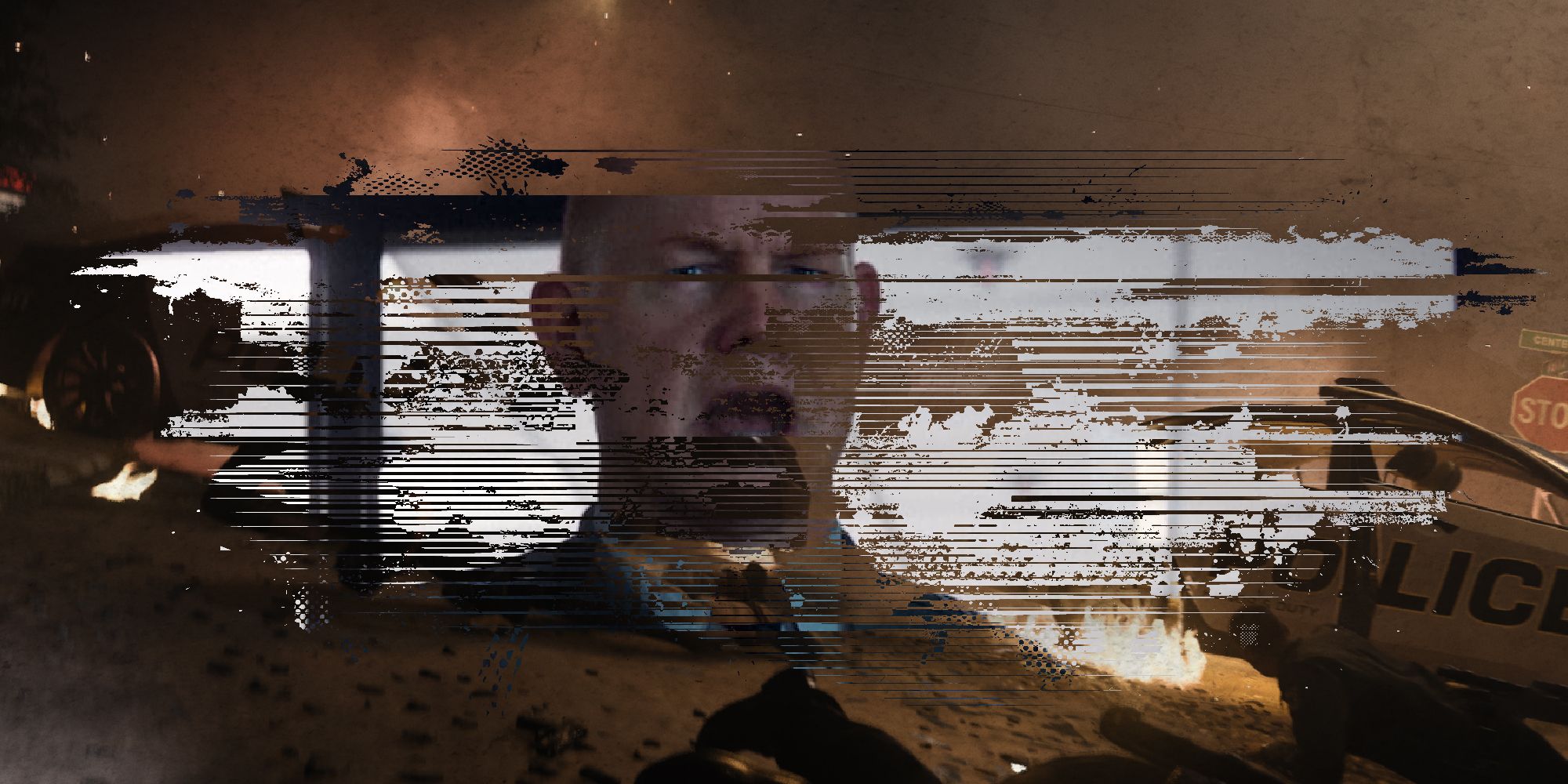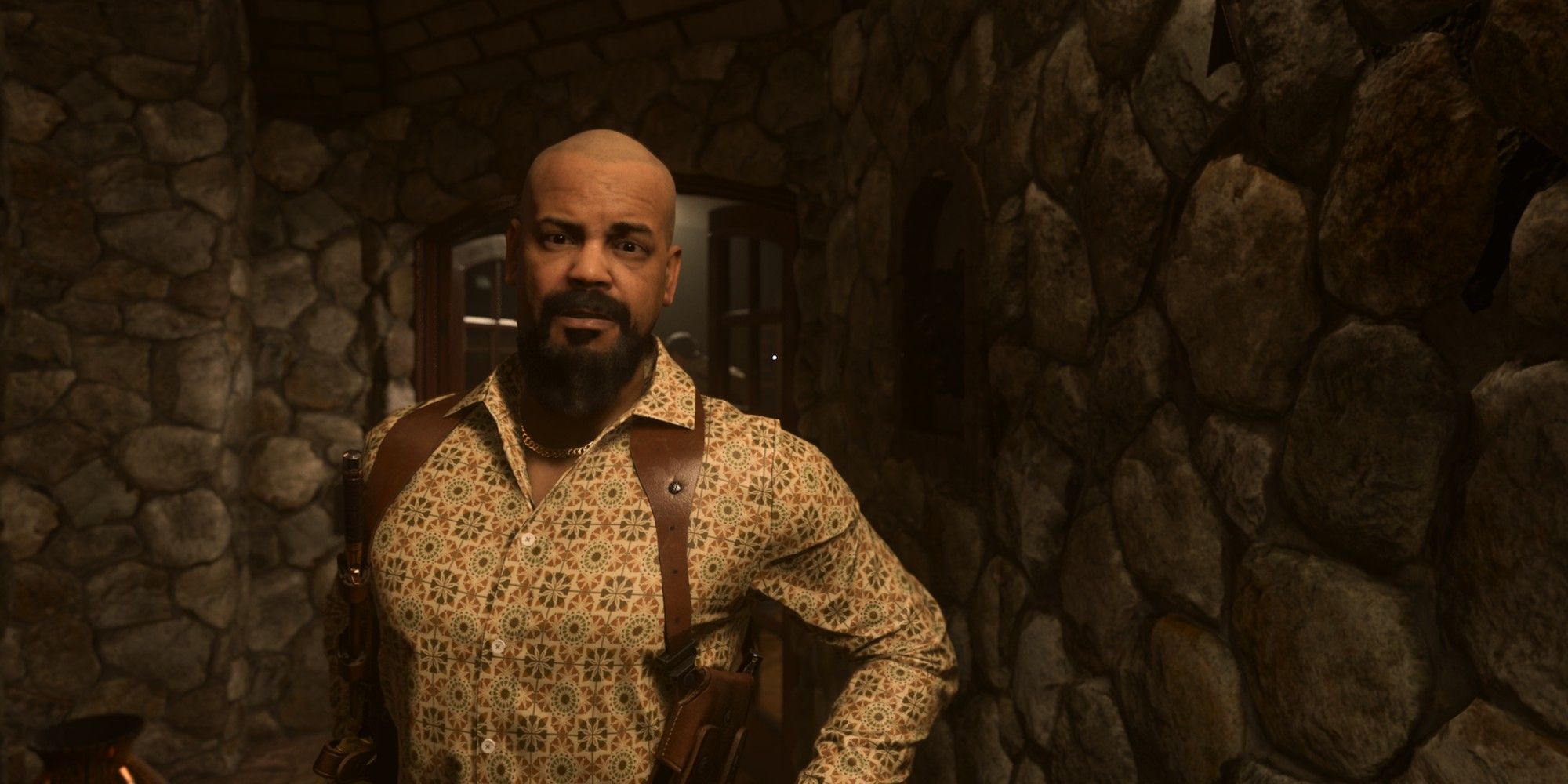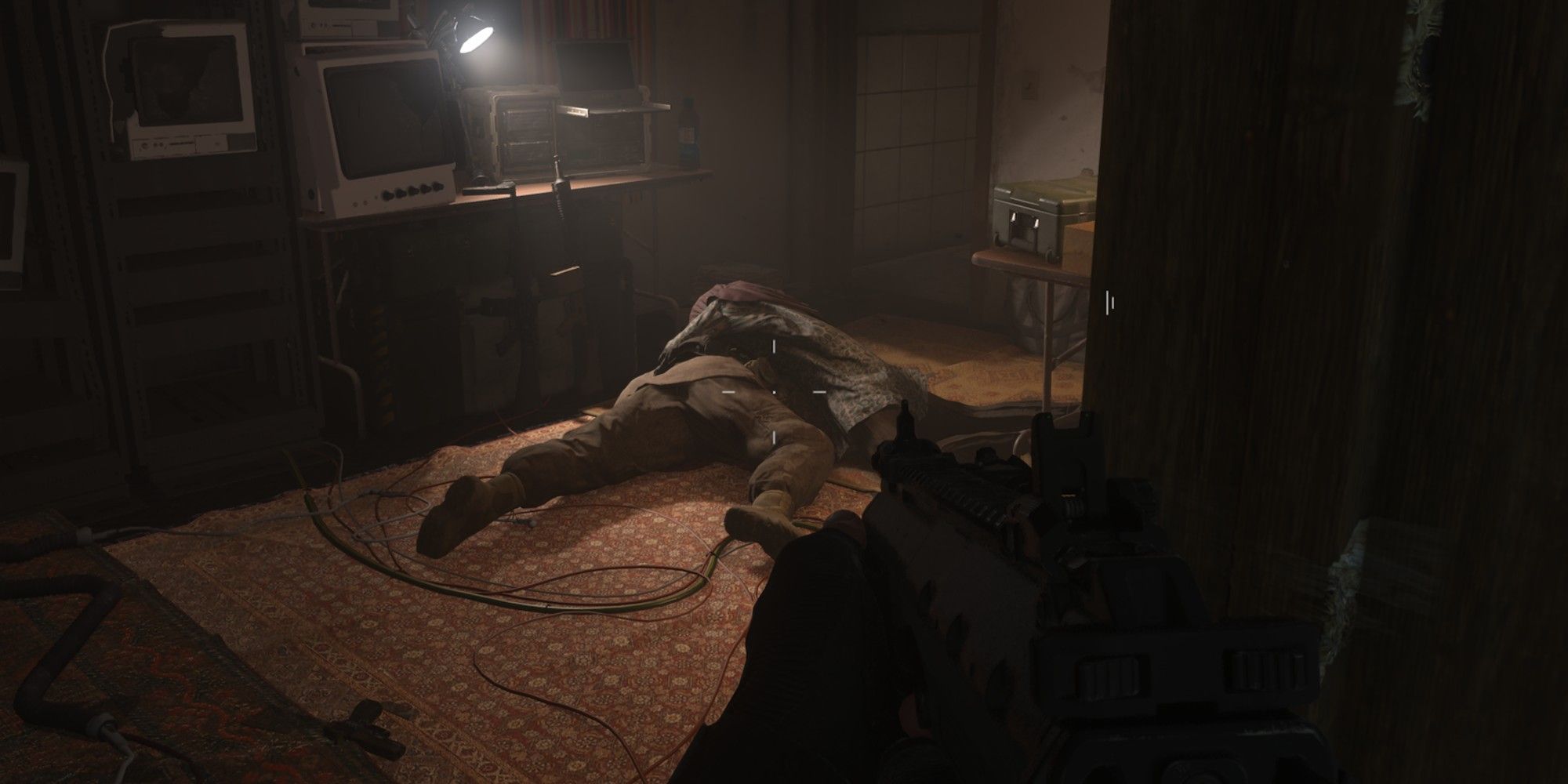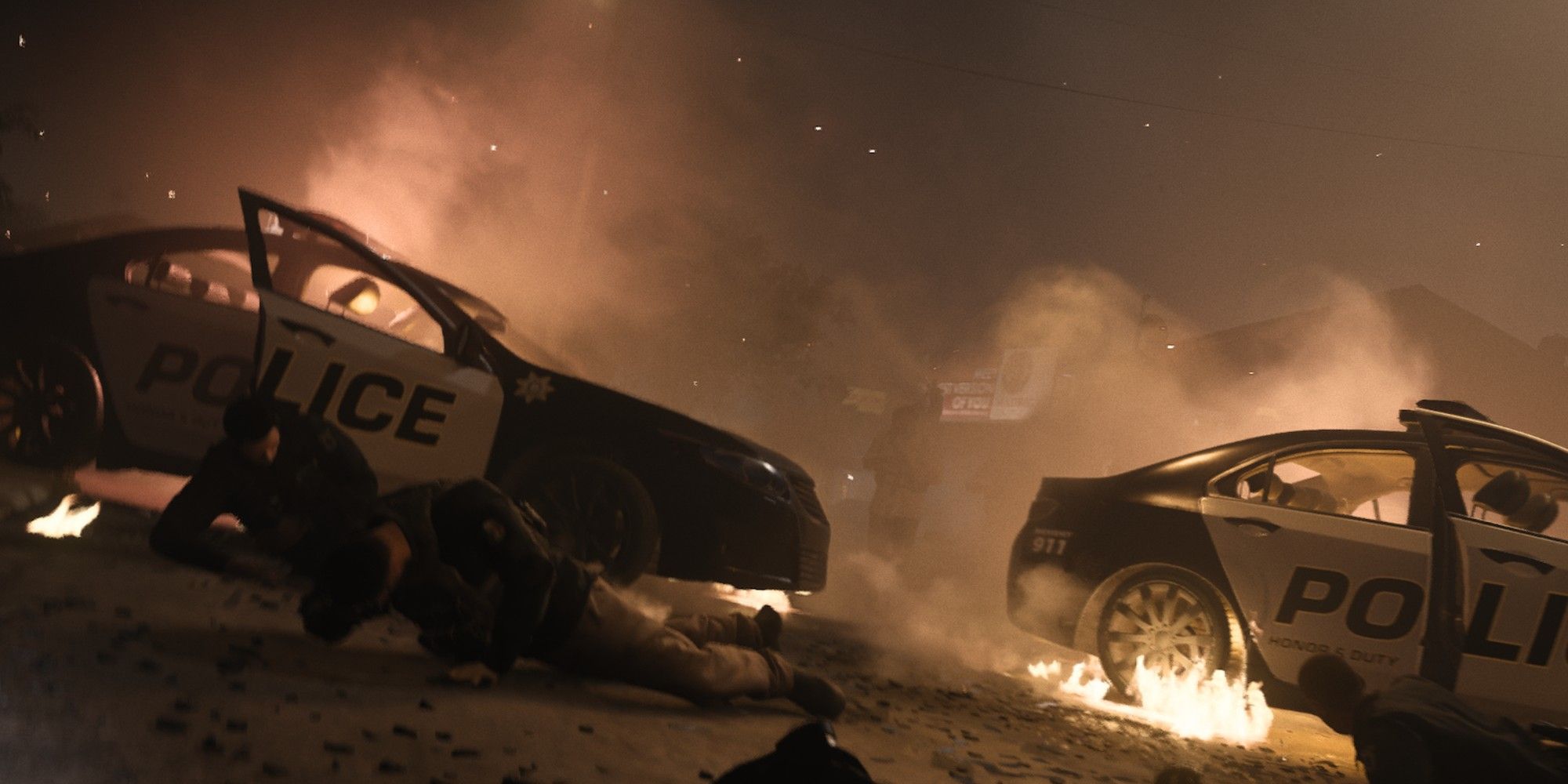Modern Warfare 2019’s campaign was the grittiest entry in the series, and while Modern Warfare 2 has removed many of the moral choices that made the previous campaign so divisive, there’s still something that feels unsettling about playing war given that a real conflict is raging in Europe. That’s especially true when Modern Warfare 2 treads a very thin line between serious topics and a sort of extravagant silliness. It is, in short, Call of Duty, with everything that entails.
The campaign is fascinating, macabre, and stupid, set against a backdrop of spectacular set pieces, gimmicky military phrases (“We work low and slow, we’re off the books”, or “Death from above, fucker”), and a spiralling narrative that takes you from Middle Eastern deserts to the canals of Amsterdam. The story is thematically familiar—organized terrorist groups, special forces teams (with the reappearance of fan favorites Ghost, Soap, Gaz, Price, and Farah), and the great betrayal that inevitably arrives when you most expect it. We’ve literally seen this all before.
That being said, I enjoyed the campaign quite a lot. There were parts that made me say “Oh shit” out loud, and the five-and-a-half hours I spent in this fictional world flew by. It’s fast-paced, brutal, and classic Call of Duty throughout. It took a lot of what made 2019 good - the tense breaching sequences, team-based combat, the micro-conflicts - and expanded on them. The levels are open with vast amounts of breathing room, almost feeling like Hitman at times. These epic scenes are scored with an anxiety-inducing soundtrack, and the voice actors are top class, helping deeply instill a sense of brotherhood. Everything about this game’s atmosphere is outstanding. I never want to see an armored enemy again, though. Especially not with a shotgun.
However, despite all the positives, my time with Modern Warfare 2’s campaign felt different this time around. Maybe because I’m older, or maybe because I’ve spent the last eight months reading reports and watching footage of one of the most horrible conflicts to occur in Europe since World War 2. I can see the comments already: “Shut up, it’s just a game.” Yes. Clearly. But it still directly impacted how I felt as I played this campaign. I was engaging with an experience - even if that is through the medium of a video game - that many people have lived through this year. I was holding the weapon.
It’s a difficult topic to approach. There have been conflicts during the release of every Call of Duty game. Critics talk about this every time a Modern Warfare title is released dating all the way back to 2007. Hollywood makes films about wars every other month - 2022’s biggest movie, Top Gun: Maverick, is all about a covert military mission.
Modern Warfare 2 has the budget of a blockbuster - you can tell by the several hundred people featured in the credits - and the topics it deals with (Iranian missiles, Russian interference, terrorists, Mexican cartels) are all old hat at this point. I should expect this. I have played this or a variation of this dozens of times before. But Call of Duty’s popularity and sheer production scale warrant some proper criticism - we should be asking it the same questions we ask of films. Does it do a good job of representing war?
Some of these ideas of how to represent conflict are addressed within the narrative. Hassan, the game’s big bad, spends a lot of time talking about Western imperialism and the destruction of his homeland. This is brilliantly offset against Graves, a shadowy commander of an elite US spec ops force, okaying the leveling of a small village in Mexico. “Don’t shoot the buildings, there are civilians inside,” he says, briefly before all hell is unleashed with 30mm cannons and rockets. The writers do make an attempt for the game to become self-aware. Is it enough? I’m not really sure.
The campaign also focuses on the everyday suffering of warfare, and these were the parts that were most challenging. Early in the campaign, my team of special forces agents rush through a series of buildings to rescue a downed helicopter. We blast indiscriminately. In one room, I find a woman crying over her dead brother, son, husband, friend - but I pull the trigger too quickly, and it’s only after the bullet has left the gun that I realise what I have done. This is the purpose of the scene, I can’t deny that—it’s just out of place amongst all the weirdly macho-bullshit jokes and “yee-haws.” Again, that same conflicted feeling - is war like that? I have no real idea, but I’m guessing mostly not.
Deep in a barrio, corrupt American special forces kill civilians freely under the guise that they are cartel members (in this game, everyone’s the bad guy, that means no one can be the bad guy!). As I clear each building on my own, I am separated from my team, and Soap is breathing deeply - then I hear a dull thumping sound. What is that? I clear each room. The building is empty. I approach a door where the thumping is coming from - is it some kind of turbine? I open the door slowly. There is a dying man on the floor. He looks up at me. He has been clawing at the door. Where was he trying to go? He falls face flat onto the tiles. It’s horrifying.
The art direction also plays a huge part in the immersion. I played on the Xbox Series X, and I was blown away by the detail and fidelity of each dark alleyway, of the rendered sex shops in Amsterdam (I could write another thousand words on Modern Warfare’s representation and design of Amsterdam, by the way), and the copious amounts of rain thrown in to show off the engine. My flatmate, who watched me play through one mission, said: “It’s gonna be terrifying when you can live this in VR.” Yep. That’s the key point - at some points the game felt real, something that you are in the act of doing, rather than just watching, and that’s a huge responsibility for the writers.
There is value to Modern Warfare 2’s campaign. It is art. It’s also just intense fun throughout, because it is ultimately a video game. To say anything else is to take away from the years of hard work that has gone into producing this spectacle. But we can’t forget about the context: millions of people, a lot of them very young and impressionable, will play this campaign. This is why it’s important to have these sorts of conversations. The campaign constantly dances a wobbling tightrope between being too fantastical and exposing the realities of modern war. Sometimes it slips too far into the realistic horrors, and it’s unable to commit, so it has to pull you back with just one more big budget explosion.




